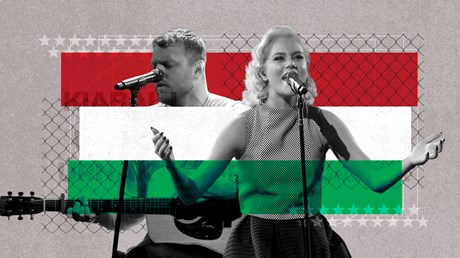Australian worship movement flourishes in both post-communist Budapest and post-church Seattle because it confronts the historical establishment.

“What are you saying? What are you thinking? What are you doing?” The man on stage flashes a toothy smile as he scans the thousands of concertgoers on a chilly November evening at Overlake Christian Church, a nondenominational megachurch pastored by Mike Howerton and located east of Seattle, near the headquarters of Microsoft. Last fall, Brian Houston, cofounder and global senior pastor of Hillsong Church, headlined the US-based There Is More tour, incidentally also the name of his 2018 Christian living title and worship album, recorded live at the Sydney, Australia, location.
The Hillsong music itself, with such singable titles as “Mighty to Save” or “I Surrender,” cuts across denominational lines. But in certain cultural or geopolitical contexts beyond Seattle or Sydney, the music has also served to subvert church and state confines. Kinga Povedák, a religion research fellow in Szegad, Hungary, notes how Hillsong’s music fueled an alternative, faith-based youth movement that resisted the tenets of socialism in her country in recent decades.
Through extensive interviews with Hungarian worship leaders and ethnographic study of Pentecostal and charismatic churches, Povedák notes the emergence of Hillsong lyrics in believers’ personal faith stories, as well as within the practices of congregations and religious rituals across various denominations. Young people, from Catholic to Baptist, all sing the same Hillsong tunes that they heard from Hillsong London’s team at a live festival or watched via YouTube, crossing lines that the government and decades of bitter rivalry had reinforced. Povedák labels it a “doubly alternative movement,” sparking …
Source: Christianity Today Most Read